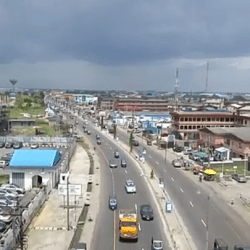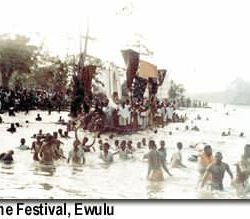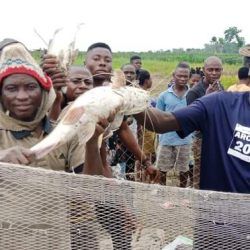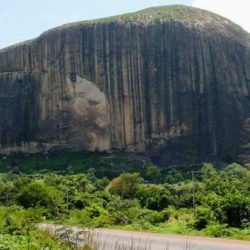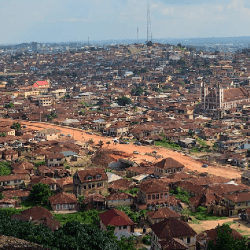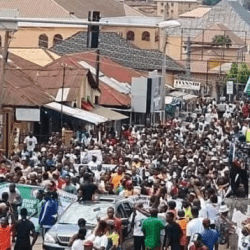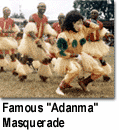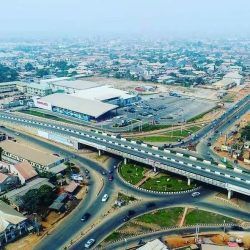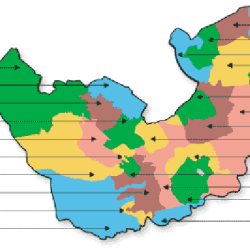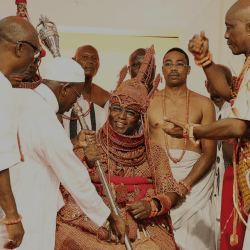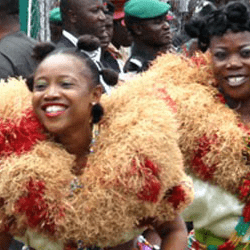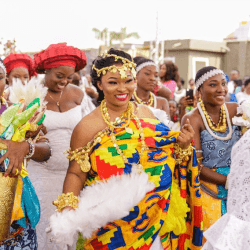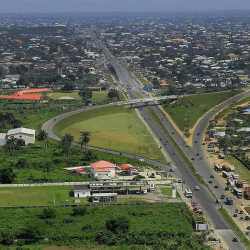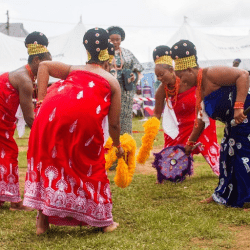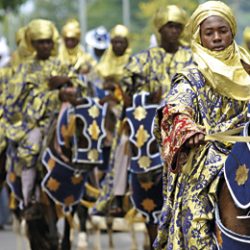The celebration of traditional festivals is an annual community affair throughout Delta State. Almost every village celebrates one festival or the other that attracts indigenes and non-indigenes at specific times in the year, usually between March and December. These festivals offer occasions for a reunion of family members, friends and well-wishers from far and near. However, the main essence of these festivities is to provide opportunities for ancestral worship and purification of both the land and the people.

Some of the important festivals celebrated in the state include Adane-Okpe, lyen, Edjenu, Okere Juju, Ine, Ulor, Ukwata, Ishe and Ore-Uku.
Adane-Okpe festival holds every year from December 22-30 in Orerokpe in Okpe LGA. It is a period of ancestral worship, which helps to promote the unity of the Okpe people. The occasion also provides an opportunity for the initiation of new Okakuros (Chiefs).
In Effurun, Edjuvbie holds for 14 days in March every year. The festival is a period of merry-making and the offering of sacrifices to the gods. lyen and Edjenu are two major festivals in Ughelli and Okpara. lyen is held annually while Edjenu takes place every 25 years . Another festival that is celebrated at intervals of 25 years is Ekele of Agbarha. One of the most important festivals in Isoko is Eri-Okpe festival which holds in March every three years. It is celebrated to usher in peace and a rich harvest.
In Warri, the dominant festivals are the Agbassa-Juju and Okere-Juju. While Agbassa-Juju is celebrated every three years between April and May, Okere-Juju festival starts in June and ends in August every year.
Among the Izons, the important festivals are Seigbein, Okabowei and Kalanama Oge. Okabowei festival, celebrated by the people of Patani, is held in April while Seigbein takes place in May.
Delta
Delta is an oil rich state located in the Niger Delta area of Nigeria.
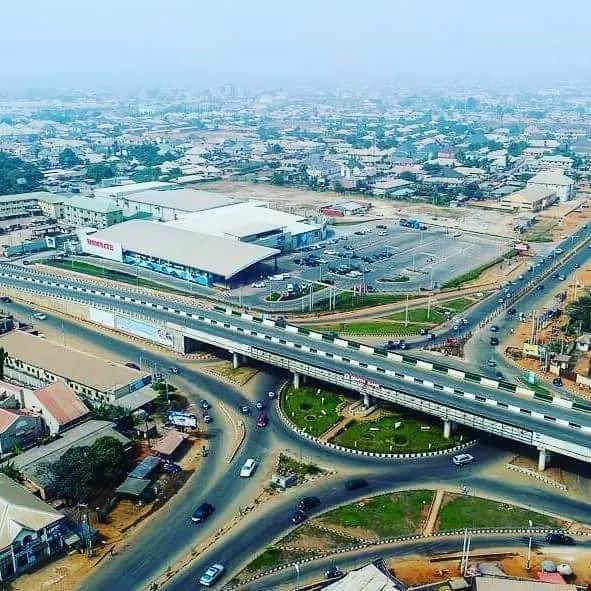
Name: Delta State of Nigeria
Founded: 27Aug, 1991
Administrative capital: Asaba
Commercial capital: Warri
The state is largely a peaceful and beautiful place known for: Oil wealth, two prominent cities of Warri and Asaba and for notoriety in cybercrimes and ritual killings.
Some of the young men can be very notorious daring to have a showdown even with law enforcement officers.
Delta has many ethnic groups. Top on the list are Ijaw and Igbo
Besides oil, Delta State is an agricultural producing state with large harvests of cassava and other crops.
It is situated in the region known as the South-South geo-political zone with a population of over 7 million persons.
The capital of Delta State is Asaba, located at the northern end of the state, with an estimated area of 762 square kilometres (294 sq mi).
Warri is the economic nerve center of the state and also the most populated. It is located in the southern end of the state.
Delta state has a total land area of 16,842 square kilometres (6,503 sq mi).
There are various solid mineral deposits within the state – industrial clay, silica, lignite, kaolin, tar sand, decorative rocks, limestone, etc.
These are raw materials for industries such as brick making, ceramics, bottle manufacturing, glass manufacturing, chemical/insulators production, chalk manufacturing and sanitary wares, decorative stone cutting and quarrying. But these minerals are under-utilized.
Delta state also has huge deposits of crude oil and is also one of the largest producers of petroleum products in Nigeria. Sales of petroleum products is what majorly drives its economy.
Delta State has some historical, cultural and socio-political tourist centers that attract visitors from around the globe. Some of these sites of tourism include:
Nana’s Palace built by Chief Nana Olomu of Ebrohim.
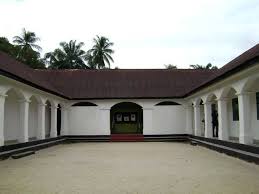
He was a powerful 19th century indigenous entrepreneur who traded with the British. The relationship eventually turned sour.
Later, he surrendered (not without putting up a fight) and was exiled to Ghana. His personal effects are housed in this grand palace.
River Ethiope which is reputed to be the deepest inland waterway in Africa (at 176 km).
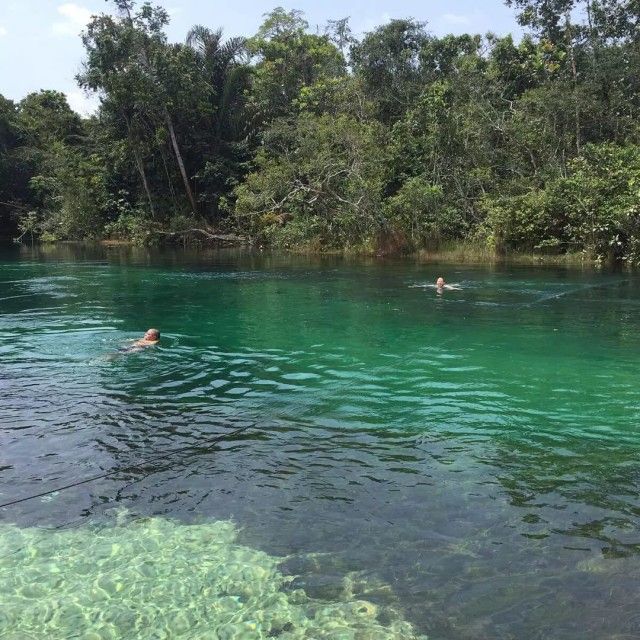
Its source is at the foot of a giant silk-cotton tree at Umuaja in Ukwuani Local Government Area of the state and flows through seven Local Government Areas in the State. It is a place of worship for Olokun traditional religion and also a common site for faithfuls of the Igbe Religious Movement.
Araya Bible Site which houses a copy of the Holy Bible. It is believed that the bible descended to this spot miraculously from heaven around August, 1914.
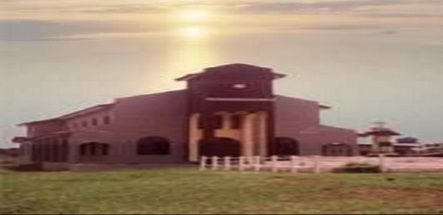
The bible dropped on rain-soaked yam and it didn’t get wet. The site now attracts thousands of Christians yearly.
Demas Nwoko Edifice which was built using traditional materials, designs and construction techniques of the Igbo civilization and the Benin Empire by Demas Nwoko, an architect, builder and artist of international repute from Idumuje-Ugboko, in Aniocha North Local Government Area, Delta State.
TMungo Park House which is now the site of the National Museum, Asaba. The house was constructed by the Royal Niger Company (RNC) in 1886 and was used as a colonial administrative headquarters, a military house, the colonial administrative divisional headquarters, the RNC Constabulary building, and the seat of the Urban District Council at different times.
Niger Bridge which connects Delta State (by extension, western Nigeria) to the Eastern part of Nigeria. It is a beauty to behold. It was completed in 1965 and cost £5 million. It was damaged during the civil war, but later repaired.
Lander Brothers Anchorage, Asaba which was built in memory of early British explorers. The complex has a museum, a graveyard, and many artworks and writings. It houses a replica of one of the boats that was used by the brothers.
Warri Kingdom Royal Cemetery which is 512 year old burial ground and serves as the resting place of past rulers of Warri kingdom.
